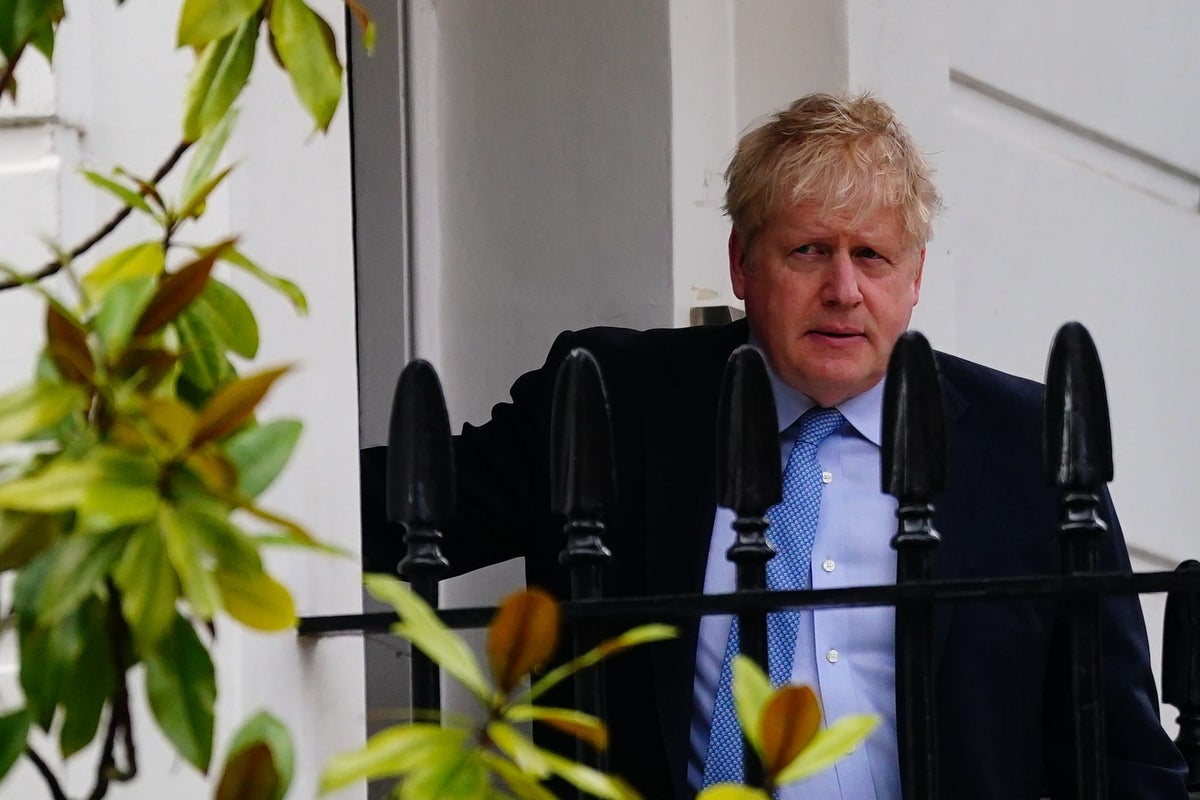
No notes on coronavirus were sent to Boris Johnson nor were emergency Cobra meetings held over a 10-day period in February 2020 coinciding with half-term holidays, the Covid inquiry has heard.
It comes as a former top aide to Mr Johnson suggested he was worried about leaks from the heart of Government, amid questions about why he had turned on the “disappearing message function” on a high-level WhatsApp group in April 2021.
Martin Reynolds, who appeared before Baroness Heather Hallett’s probe on Monday, pointed to a “systemic failure” to prepare for the pandemic as he appeared to acknowledge that the realisation of the scale of the disaster had come “late”.
The former top official – dubbed “Party Marty” due to his role in the partygate scandal – faced questions from Hugo Keith KC, lead counsel to the inquiry, about a 10-day spell in February 2020.
He was asked why there “were no communications by email, by Cobra, by boxed notes, with the prime minister during that 10-day period on coronavirus”.
Mr Reynolds, who initially said that he could not recall whether there was any “urgent business” during that period, was told by Mr Keith it was half-term.
The senior civil servant faced repeated questions about whether Downing Street and the Cabinet Office were slow to respond to the impending crisis, as scenes and reports of overwhelmed Italian hospitals began to be broadcast in the UK.
“The fact we got into that position is a result of a systemic failure and a failure of the people who are really tracking the situation most closely,” he said.
He accepted that Government protocols were “inadequate” and “grossly deficient”, while also pointing to the “unusual dynamic” in Downing Street during that period and the influence of Dominic Cummings.
Mr Reynolds offered a picture of a Government that, after Mr Johnson’s 2019 general election, was “very different” and acknowledged that there had been a “bedding down of new working arrangements”.
He told the hearing: “There had been a very big shift in overall focus pre-election on Brexit and the Brexit negotiations and that had been… the overriding focus of that entire period for three or four months, and that had been concluded, the election had happened and there did feel like there had been a significant turning of the page.
I cannot recall, but I imagine that the prime minster – I’m afraid I can only speculate – but I imagine he hadn’t realised that all of his WhatApps would become public via the Covid inquiry— Martin Reynolds
“Because with a majority of 80 or whatever it was, there was a sense that the Government had a five or 10-year time horizon to look at and there was a really strong focus on the forward agenda.”
He said that there was “unease” about a so-called “shitlist” reportedly drawn up on civil servants, while also describing Mr Cummings as “the most empowered chief of staff Downing Street has seen and was the person whose writ ruled”.
Mr Cummings will appear before the probe on Tuesday, with former Number 10 director of communications Lee Cain also due to give evidence later.
Elsewhere it emerged that the country’s top civil servant said Boris Johnson was “mad” if he did not believe his private WhatsApp messages would become public as part of the UK Covid-19 Inquiry.
The extent and nature of decision-making through the messaging app has become a key plank of Lady Hallett’s probe, with the comments about Mr Johnson made in exchanges between Cabinet Secretary Simon Case and Mr Reynolds.
Mr Reynolds, appearing before the inquiry on Monday, said Mr Johnson had perhaps not realised his WhatsApp messages would enter the public domain.
In correspondence shared with the inquiry from December 2021, Mr Case said: “PM is mad if he doesn’t think his WhatsApps will become public via Covid inquiry – but he was clearly not in the mood for that discussion tonight! We’ll have that battle in the new year”.
Mr Reynolds responded: “Agreed – thanks for your help.”
Giving evidence to the inquiry on Monday, Mr Reynolds was asked by Hugo Keith KC, lead counsel to the inquiry, what that “battle” referenced in the messages was about.
Mr Reynolds said: “I cannot recall, but I imagine that the prime minister – I’m afraid I can only speculate – but I imagine he hadn’t realised that all of his WhatApps would become public via the Covid inquiry.”
During the hearing, Mr Reynolds also suggested that he had turned on the “disappearing message function” on the WhatsApp group titled “PM Updates” on April 15 2021 because of concerns about potential leaks.
“It could, for example, have been because I was worried of someone screenshotting or using some of the exchanges and leaking them,” he said.
Downing Street on Monday said that the use of disappearing WhatsApp messages is permitted as civil servants and ministerial private offices are required to record and log official decisions for the official record.
Mr Reynolds made headlines after it emerged he arranged a gathering in the No 10 garden on May 20 2020 when leaving home without a reasonable excuse was banned. He was subsequently forced out amid outrage over the partygate scandal.
Asked about the approach taken by Mr Johnson, who was described at one stage as having “oscillated” over different courses of action, Mr Reynolds said: “I think it’s fair to say the prime minister did, as it were, blow hot and cold on some issues.”


.png?w=600)




